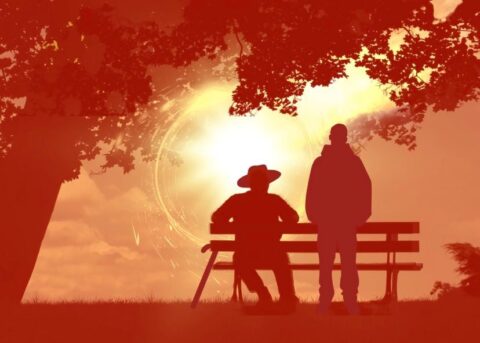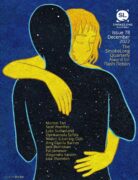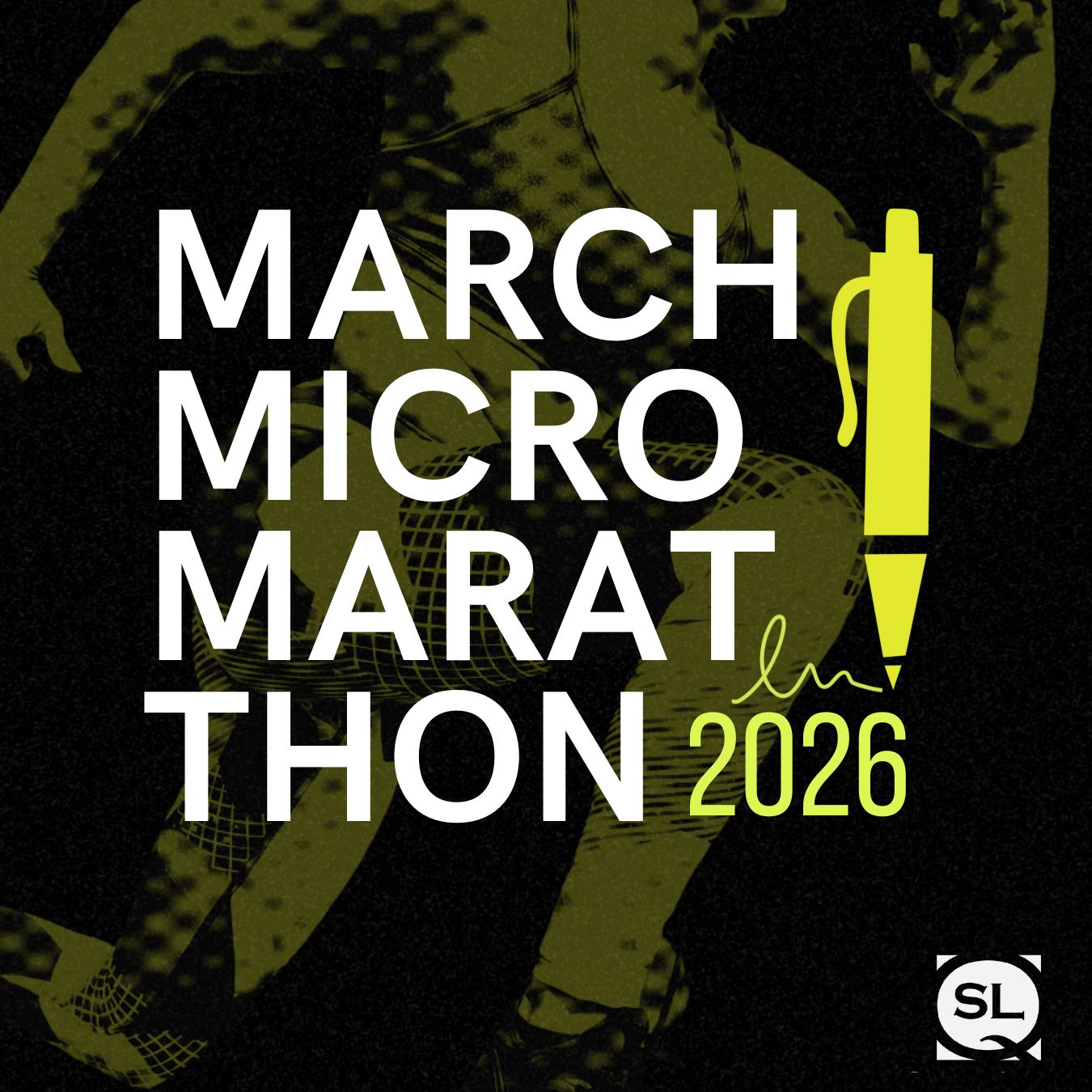It’s one hour till the end of the world and Mr. Chan is watching the sky. He can’t see the asteroid behind his cataract clouds, but he enjoys the heat on his face. Six days a week, I walk through the park on the way home from the call center. And six days a week, I see Mr. Chan sitting on the same bench under the same tree. We chat for a few minutes, maybe an hour. I’ve been in my job for twenty years now, and so if my math is right, I’ve had upwards of six thousand conversations with Mr. Chan. You can live your whole life with your family and spend less time talking to them.
Today, I ask Mr. Chan how his surgery went.
“I forgot I even told anyone about that.”
“It’s important to remember.”
He nods, cloudy eyes glossing over. “At this rate,” he says with a chuckle, “you should be my emergency contact.”
Time: t-minus fifty-two minutes. An asteroid only needs to be one kilometer in diameter to trigger enough devastation to wipe out all of humanity. That’s a fraction of a fraction of the size of the earth. A drop of rain on the nose. I don’t say any of this to Mr. Chan, of course. What’s the point?
“Your son should be your emergency contact,” I say to Mr. Chan. “He still calls, right?” I know he doesn’t.
Mr. Chan stays silent for a while, listening to the pigeons peck away at nothing in particular. Then, he asks me how my job is going.
“Good.” I regret lying to him twice. I don’t even know why I went into work this morning. It’s not like I’ll be cashing my next paycheck, what with the world ending and all.
“Don’t worry. That promotion is just round the corner, isn’t it?” He winks, and we both laugh.
The words had rolled off the tongue far easier in youth: This gig is just to pay the bills while I figure life out, you know? I’ve stopped saying that because I’m thirty-nine now, and maybe that means what I’m looking for simply cannot be found.
“Your son still cares,” I say to Mr. Chan.
“So does your father,” Mr. Chan says. Touché.
I don’t remember the first time I brought Baba up. Maybe it was when Mr. Chan told me he didn’t leave the house for weeks when his wife died, and I replied, callously, that my father didn’t even cry at my mother’s funeral. Baba was not like Mr. Chan. Baba didn’t drown his sadness with tears, no. He crushed it under sloshed knees, dazzled it with shimmering dice on a felt pad, lashed it timid with sticks and stones. And me, I was there, too, but there was no room left in that house for my sadness. And so I went to work, picking up the phone, casting my voice out into the void, hoping to hear Mama reply.
Mr. Chan changes the topic and says, “It’s getting too cold for me to sit out here every day.” He raises a bony forearm. “The doctor says I need to put on weight to improve my odds.”
T-minus thirty-six minutes. The asteroid is the size of a baseball stadium in the sky. I wonder if Baba can see it. He wouldn’t be sad about the end of the world, I don’t think. As he would say: Sadness is an emotion only the privileged feel. Who has time for tears when there is money to earn and empty bellies to fill? Yet he passed his days lost in a stupor and spent his money on fast love and let his stomach burst with rage and bitterness.
“Your Baba is around my age, I’m guessing.” Mr. Chan either doesn’t know how to properly change the topic, or he can read my mind. “Which means we both left China around the same time. Life was difficult back then.”
“Everyone suffers.”
“Some learn to do it better.”
“I can’t. I’m tired.”
Mr. Chan stands and I give him my arm. His fingers are cold, as cold as Mama’s the day we found her. Brave and mighty and strong, Mr. Chan stares straight at the asteroid. He’s smiling, and that’s when I realise I haven’t seen Baba smile since Mama died. The day I left home for good, Baba didn’t stop me. This is my last memory of him: a fiery cigarette between his lips grimacing at the words he would not say to bring me back.
“It’s a beautiful day, isn’t it? Maggie would’ve loved it.”
I’ve never met Mr. Chan’s late wife, but he describes her as having a smile that could end wars. I still don’t know what that means.
T-minus ten minutes. The asteroid breaks through a cloud. The trees stretch skywards and the pavement comes undone in jigsaw pieces.
“Can you see it now?” I say to Mr. Chan as we watch the sky. “The end of the world?”
“What?” Mr. Chan squeezes my hand. “How can the world possibly end on a beautiful day like this? Feel the heat of the sun on your skin. Your mother would’ve loved it too, no?”
I close my eyes and brace for impact. Mama is lying on the grass beside me, and we’re reading clouds in the sky. There’s the tail of the rabbit, can you see it? She whispers in my ear, You’ll always be my little tuzi. I brace for impact, and Mama wipes the sweat off my brows and combs my hair with her fingers. I brace for impact, and Mama lifts me up with strong arms as I reach towards the big white rabbit in the sky. I brace for impact, and I wait. I wonder if Mama is waiting too. There are clouds as far as the eye can see and Mama is whispering stories in my ear. How can the world end on a beautiful day like this?
____________________
Winner of The SmokeLong Quarterly Award for Flash Fiction



 In its third year, The March Micro Marathon will be, as usual, a prompt-a-day whirlwind for 24 days. You’ll exchange drafts of micro fiction, non-fiction, and prose poetry in small groups and gather for a series of online events (all recorded for participants unable to attend live). We’ll finish with 3 competitions, and participants who are not already in SmokeLong Fitness will be invited to workshop with SmokeLong Fitness until the end of April!
In its third year, The March Micro Marathon will be, as usual, a prompt-a-day whirlwind for 24 days. You’ll exchange drafts of micro fiction, non-fiction, and prose poetry in small groups and gather for a series of online events (all recorded for participants unable to attend live). We’ll finish with 3 competitions, and participants who are not already in SmokeLong Fitness will be invited to workshop with SmokeLong Fitness until the end of April!